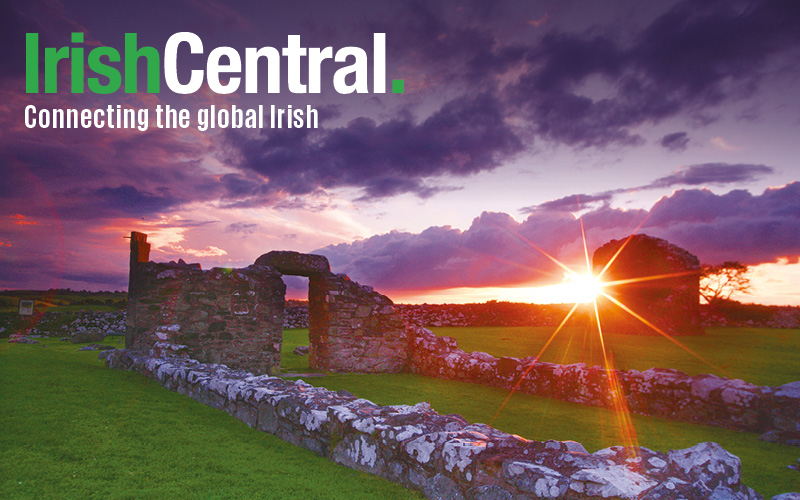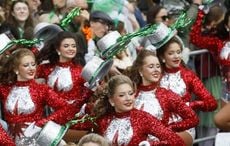The Notre Dame-made documentary entitled “1916,” a three-part series on the Easter Rising narrated by Liam Neeson, has gotten off to a splendid start on Irish television. Critics are raving about the Irish American production.
Irish Times critic Bernice Harrison called it a “landmark” series and stated, "its landmark TV status is further burnished by Liam Neeson as voiceover and a full-blooded, atmospheric soundtrack from Patrick Cassidy."
She continued, “'1916' is clearly a big budget project: locations mentioned in the credits range from Berlin to India, France to the US. While no documentary about an historical event can be viewed as definitive – not least because as an academic discipline, history studies is built on historians contradicting each other – '1916' succeeds superbly on two fronts: it is lucid, accessible storytelling that creates a vivid and vibrant image of the time; and its editorial viewpoint, that the Rising must be seen in an international context, is a convincing and appealing one.”
The series has already been snapped up by a record 155 public television stations across the US and in countries around the world where the Irish diaspora is spread. It will be shown around St. Patrick’s Day or Easter, the 100th anniversary, across the United States and Canada. The BBC has also picked it up.
The series was funded to the tune of $3 million by the Keough-Naughton Institute, named after the late American Irish philanthropist and Coca-Cola president Don Keough and Irish businessman Martin Naughton of Glen Dimplex. It was overseen by Briona Nic Dhiarmada, an Irish filmmaker and the Thomas and Kathleen O'Donnell Professor of Irish and Concurrent Professor of Film, Television and Theatre at Notre Dame.
Read more about the 1916 centenary here.
Harrison notes, “'1916' is directed by Ruán Magan and is a well-constructed, thoroughly researched project with many historians on camera. Its key strength is the way it skilfully condenses historical events without leaving the viewer feeling short-changed or confused.
“The contention is that a rebellion was not inevitable on that particular day in Easter week, but it was bound to come, because of the history of oppression but also because of the mood internationally at the start of the 20th century. The fight for Irish independence, it effectively suggests, was a reaction to the spread of the British Empire, a wartime enhanced understanding of nationhood and a rising class consciousness. The film also sees echoes of the American War of Independence and the French Revolution in the Rising. Comparisons are made with the language in the Proclamation and the US constitution noting the emphasis on equal rights, opportunities, and happiness.”
She quotes Liam Neeson, “In time the Rising would inspire freedom movements around the world.” There’s not much room in '1916' for those revisionist ideas that the Easter week rebels were a small bunch of blood-sacrifice terrorists with no popular mandate, who wreaked havoc on O’Connell Street and wasted lives.”
As a result of the global perspective Irish America, especially the role of John Devoy, is much more widely covered as is Roger Casement, who during his colonial career witnessed horrific abuse of natives in the Congo.
The Notre Dame production "is that rare thing: a thoroughly engaging history lesson," concludes Harrison.
Read more: The crucial facts about Ireland’s 1916 Easter Rising in one easy infographic




Comments